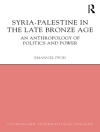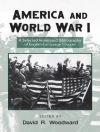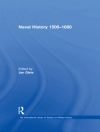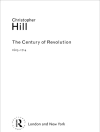This landmark collection by an international group of scholars and public intellectuals represents a major reassessment of French colonial culture and how it continues to inform thinking about history, memory, and identity. This reexamination of French colonial culture, provides the basis for a revised understanding of its cultural, political, and social legacy and its lasting impact on postcolonial immigration, the treatment of ethnic minorities, and national identity.
Jadual kandungan
Introduction: The Creation of a Colonial Culture in France, from the Colonial Era to the ‘Memory Wars’
Part I. The Creation of a Colonial Culture
Foreword: French Colonization: an Inaudible History
1. Anti-Slavery, Abolitionism, and Abolition in France from the End of the Eighteenth Century to the 1840s
2. Milestones in Colonial Culture under the Second Empire (1851-1870)
3. Exhibitions, Expositions, Media Coverage, and the Colonies (1870-1914)
4. Science, Scientists, and the Colonies (1870-1914)
5. Literature, Song, and the Colonies (1900-1920)
6. Entertainment, Theater, and the Colonies (1870-1914)
7. School, Pedagogy, and Colonies (1870-1914)
8. Dying: the Call of the Empire (1913-1918)
Part II. Conquering Public Opinion
Foreword: History’s Mark (1931-1961)
9. Dreaming: the Fatal Attraction of Colonial Cinema (1920-1950)
10. Spreading the Word: the Agence Générale des Colonies (1920-1931)
11. To Civilize: the Invention of the Native (1918-1940)
12. Selling the Colonial Economic Myth (1900-1940)
13. The Athletic Exception: Black Champions and Colonial Culture (1900-1939)
14. The Colonial Bath: Sources of Popular Colonial Culture (1918-1931)
15. The Colonial Exposition (1931)
16. National Unity: the Right and Left ‘Meet’ around the Colonial Exposition (1931)
Part III. The Apogee of Imperialism
Foreword: Images of an Empire’s Demise
17. Colonizing, Educating, Guiding: A Republican Duty
18. Promotion: Creating the Colonial (1930-1940)
19. Influence: Cultural and Ideological Agendas (1920-1940)
20. Education: Becoming ‘Homo Imperialis’ (1910-1940)
21. Manipulation: Conquering Taste (1931-1939)
22. Control: Paris, a Colonial Capital (1931-1939)
23. Imperial Revolution: Vichy’s Colonial Myth (1940-1944)
24. Colonial Economy: Between Propaganda Myths and Economic Reality (1940-1955)
25. French Unity: The Dream of a United France (1946-1960)
Part IV. Toward the Postcolony
Foreword: Moussa the African’s Blues
26. Decolonizing France: the ‘Indochinese Syndrome’ (1946-1954)
27. Immigration: the Emergence of an African Elite in the Metropole (1946-1961) 28. Immigration: North Africans Settle in the Metropole (1946-1961)
29. Crime: Colonial Violence in the Metropole (1954-1961)
30. Modernism, Colonialism, and Cultural Hybridity
31. The Meanders of Colonial Memory
32. The Impossible Revision of France’s History (1968-2006)
33. National History and Colonial History: Parallel Histories (1961-2006)
34.The Illusion of Decolonization (1956-2006)
35.The Impossible Colonial Museum
Part V. The Time of Inheritance
Foreword: The Age of Contempt, or the Legitimization of France’s Civilizing Mission
36. Trouble in the Republic: Disturbing Memories, Forgotten Territories
37. Competition between Victims
38. The Army and the Construction of Immigration as a Threat (1961-2006)
39. Postcolonial Culture in the Army and the Memory of Overseas Combatants (1961-2006)
40. Republican Integration: Reflections on a Postcolonial Issue (1961-2006)
41. Colonial Influences and Tropes in the Field of Literature
42. From Colonial History to the Banlieues (1961-2006)
43. Can We Speak of A Postcolonial Racism? (1961-2006)
44. From Colonial Stereotypes to the Postcolonial Gaze: the Need for an Evolution of the Imaginary
45. Post Colonial Cinema, Song, and Literature: Continuity or Change? (1961-2006)
46. Ethnic Tourism: Symbolic Reconquest? (1961-2006)
47. Francophonie and Universality: the Evolution of Two Entangled Ideas (1961-2006)
Bibliography
Contributors
Index
Mengenai Pengarang
Pascal Blanchard is a historian and researcher affiliated with the Laboratoire Communication et Politique (Paris, France, CNRS) and co-director of the Groupe de recherche ACHAC (colonialism, immigration, post-colonialism).Sandrine Lemaire is a historian, enseignante-agrégée (France) and co-director of the Groupe de recherche ACHAC (colonialism, immigration, post-colonialism).Nicolas Bancel is professor of politics and social sciences at the University of Lausanne (Switzerland) and co-director of the Groupe de recherche ACHAC (colonialism, immigration, post-colonialism).Dominic Thomas is Madeleine L. Letessier Chair in French and Francophone studies at the University of California, Los Angeles.












